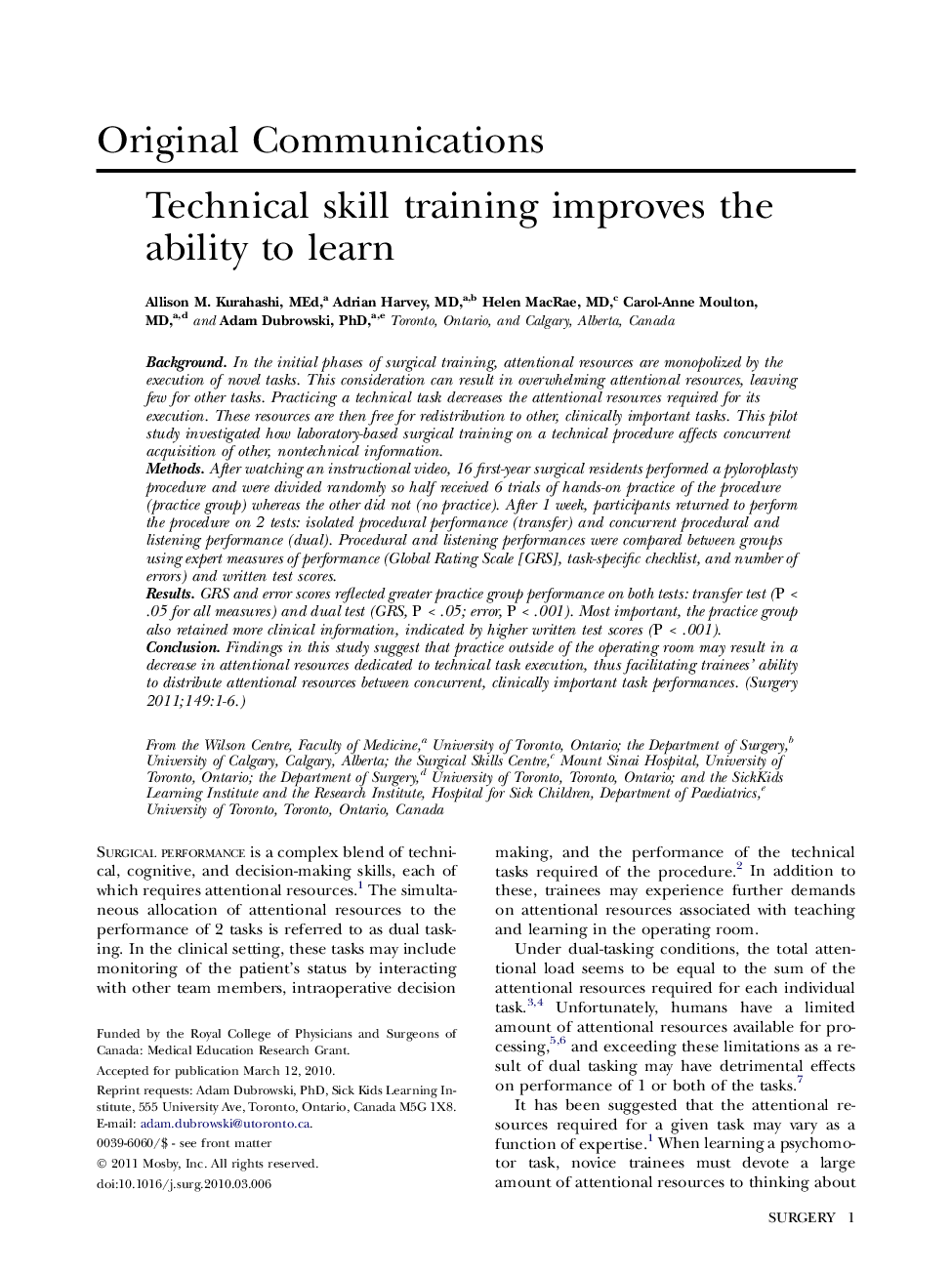| Article ID | Journal | Published Year | Pages | File Type |
|---|---|---|---|---|
| 4309002 | Surgery | 2011 | 6 Pages |
BackgroundIn the initial phases of surgical training, attentional resources are monopolized by the execution of novel tasks. This consideration can result in overwhelming attentional resources, leaving few for other tasks. Practicing a technical task decreases the attentional resources required for its execution. These resources are then free for redistribution to other, clinically important tasks. This pilot study investigated how laboratory-based surgical training on a technical procedure affects concurrent acquisition of other, nontechnical information.MethodsAfter watching an instructional video, 16 first-year surgical residents performed a pyloroplasty procedure and were divided randomly so half received 6 trials of hands-on practice of the procedure (practice group) whereas the other did not (no practice). After 1 week, participants returned to perform the procedure on 2 tests: isolated procedural performance (transfer) and concurrent procedural and listening performance (dual). Procedural and listening performances were compared between groups using expert measures of performance (Global Rating Scale [GRS], task-specific checklist, and number of errors) and written test scores.ResultsGRS and error scores reflected greater practice group performance on both tests: transfer test (P < .05 for all measures) and dual test (GRS, P < .05; error, P < .001). Most important, the practice group also retained more clinical information, indicated by higher written test scores (P < .001).ConclusionFindings in this study suggest that practice outside of the operating room may result in a decrease in attentional resources dedicated to technical task execution, thus facilitating trainees' ability to distribute attentional resources between concurrent, clinically important task performances.
